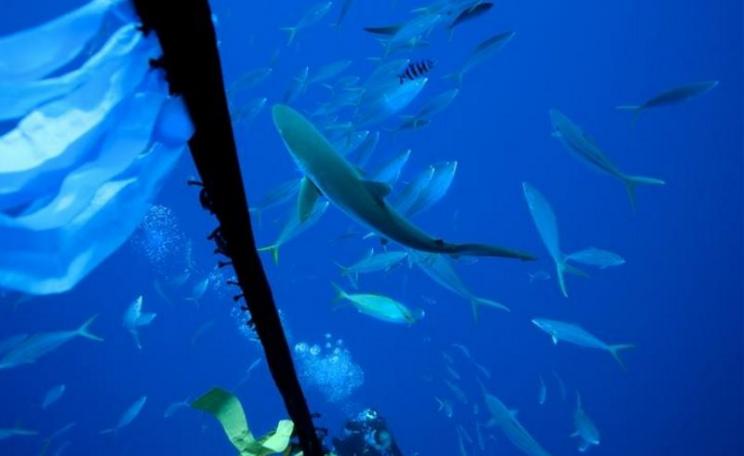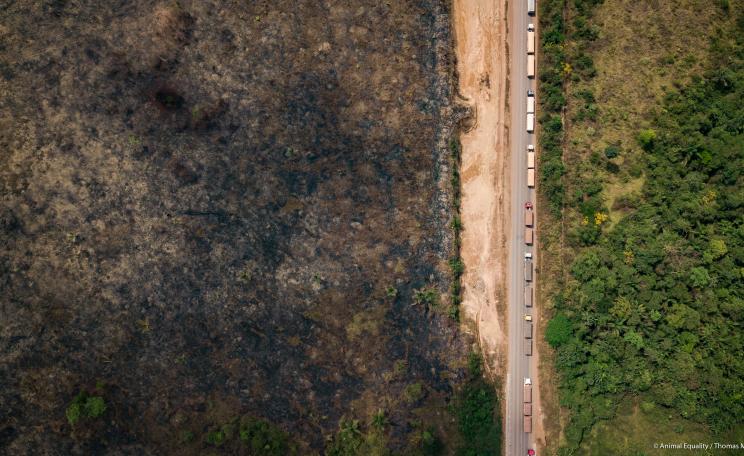People and animals there are facing absolute devastation like we’ve never seen before.
Scenes of red flames have been engulfing our screens for weeks. We watch in solidarity as the horror unfolds: scorched koalas being cradled in bloodied t-shirts; cities clouded by apocalyptic skies; the blaze-burned bodies of baby kangaroos stuck in barbed-wire fences. The deep sense of powerlessness is overwhelming.
Reports show that over a billion animals have now perished – a number so high, so catastrophic that it’s impossible to comprehend. Struggling species are being pushed to the brink of extinction.
The world grieves for Australia; for the homes, the lives and the nature that will be lost for all eternity.
Milked
And so, as courageous volunteer firefighters tackle the infernos head-on, the rest of us helplessly extend our support from afar.
WIRES Wildlife Rescue has received millions of pounds worth of donations, thanks to fundraisers much like the one I saw advertised locally this week: ‘A bake sale for the bushfires’.
And yet, this kind, altruistic action – well-intended as it may be – got me thinking… as we raise money to spare the suffering of certain animals in Australia, others are harmed in the process.
The eggs, butter and milk that helped to make those fluffy, frosted cupcakes aren’t quite the harmless ingredients we’re made to believe they are.
People and animals there are facing absolute devastation like we’ve never seen before.
Cows in the dairy industry are treated as nothing more than commodities. Forcibly impregnated year after year, their babies are repeatedly taken away shortly after birth, so they can be milked for every last drop of profit.
Breed
Their strong maternal instincts mean nothing on dairy farms: many mother cows frantically call out for their young and grieve for days following this separation.
This cycle of cruelty continues until a cow’s milk production declines and they are sent to slaughter, at a far younger age than their natural lifespan.
Sadly, hens on egg farms fare no better. A staggering 40 million hens are exploited for their eggs in the UK and almost half of these spend their entire lives locked in barren cages, crammed into such small, crowded spaces that they can’t even spread their wings.
Male chicks are deemed worthless by the egg industry, because they don’t lay eggs and are a different breed to the chickens used for meat, so they are callously gassed to death at just one day old.
Feathered
Over the last few years, Animal Equality UK has carried out undercover investigations on several egg and dairy farms and on each one animals were suffering beyond belief.
Our brave investigators have filmed new-born calves being thrown to the ground, slapped in the face and brutally force-fed; and injured, featherless hens with red-raw skin trapped inside cages, surrounded by the dead bodies of birds who didn’t survive the hostile conditions.
And yet, unlike our brave Aussie friends – rightly branded heroes for taking on the flames to rescue fearful animals – if our investigators were to do the same for a cow, chicken or a pig it would be classed as ‘property theft’.
And our money can’t help them either – quite the opposite, in fact. With every animal product we buy our money seals the fate of our furry and feathered friends.
Plant-based
To make matters worse, our eating habits have actually contributed to these forest fires in the first place. Raising animals for meat, eggs and milk generates 14.5 percent of global greenhouse gas emissions – a figure greater than all transportation combined.
Animal agriculture is also a leading cause of deforestation, species extinction, water pollution, biodiversity loss and uses nearly three-quarters of the world’s agricultural land.
There’s a sad irony in the fact that last week 10,000 camels were the target of snipers amid water shortages in South Australia, yet animal agriculture is responsible for up to one third of all fresh water consumption in the world today.
Why not stop the killing altogether?
Australia needs and deserves our love and support. People and animals there are facing absolute devastation like we’ve never seen before. But perhaps we hold more power than we think. We can help stop the situation from worsening in future; let’s make those cupcakes plant-based.
This Author
Abigail Penny is the acting executive director of Animal Equality, an international effective altruist organisation working with society, governments, and companies to end cruelty to farmed animals.







